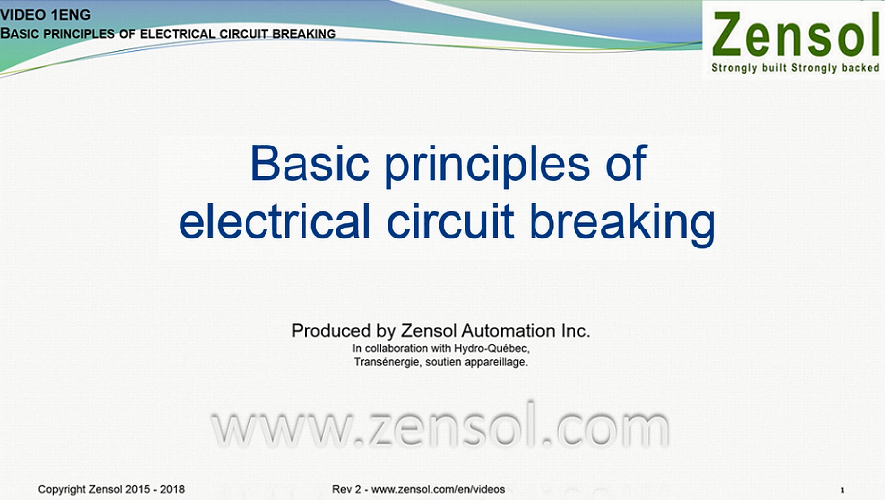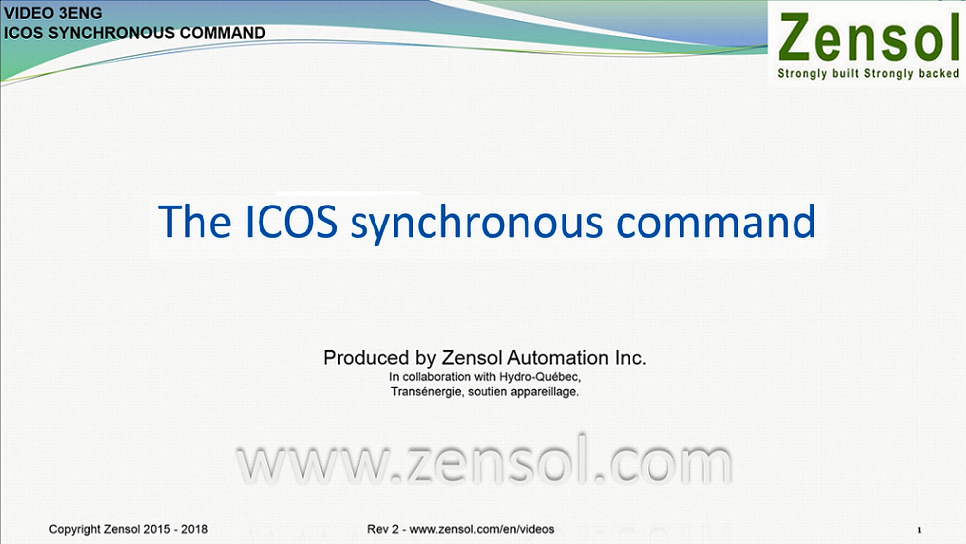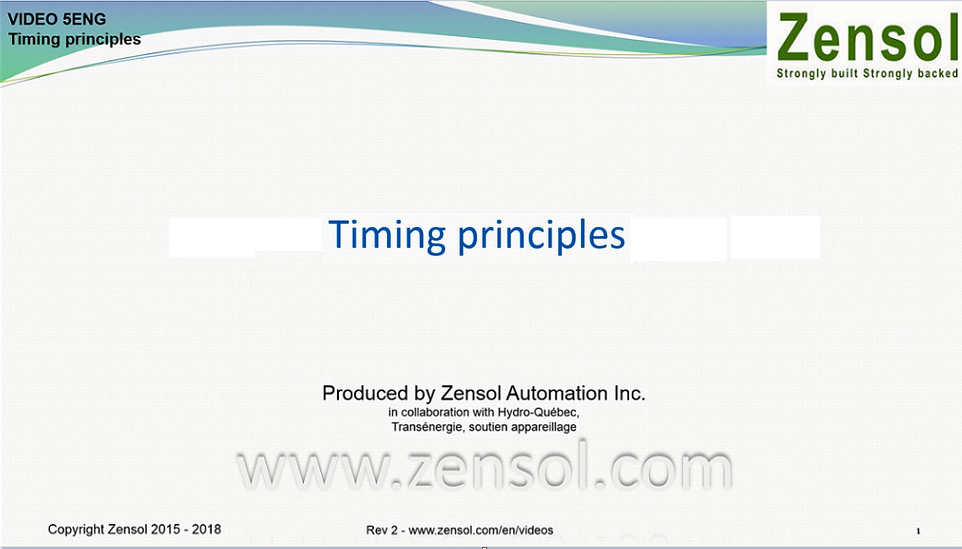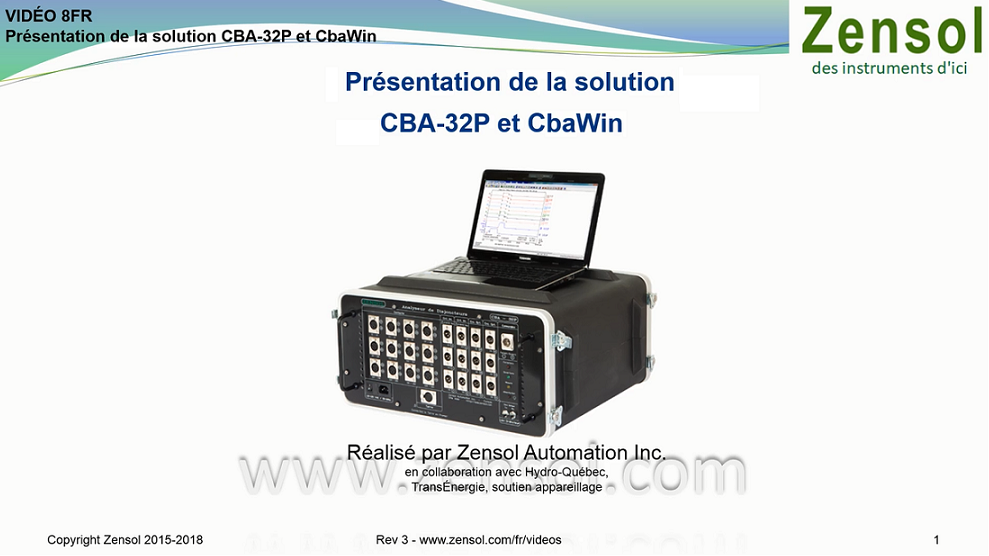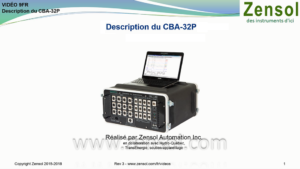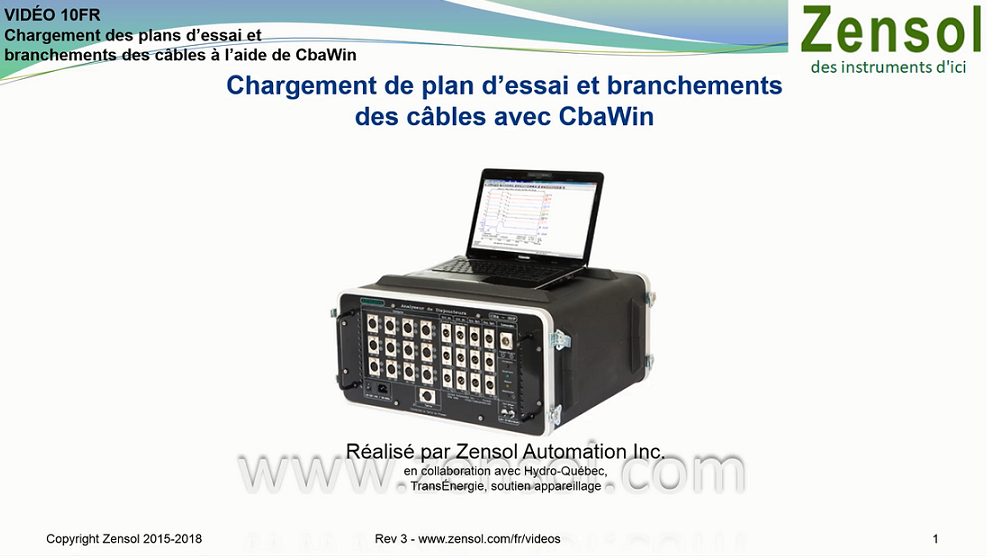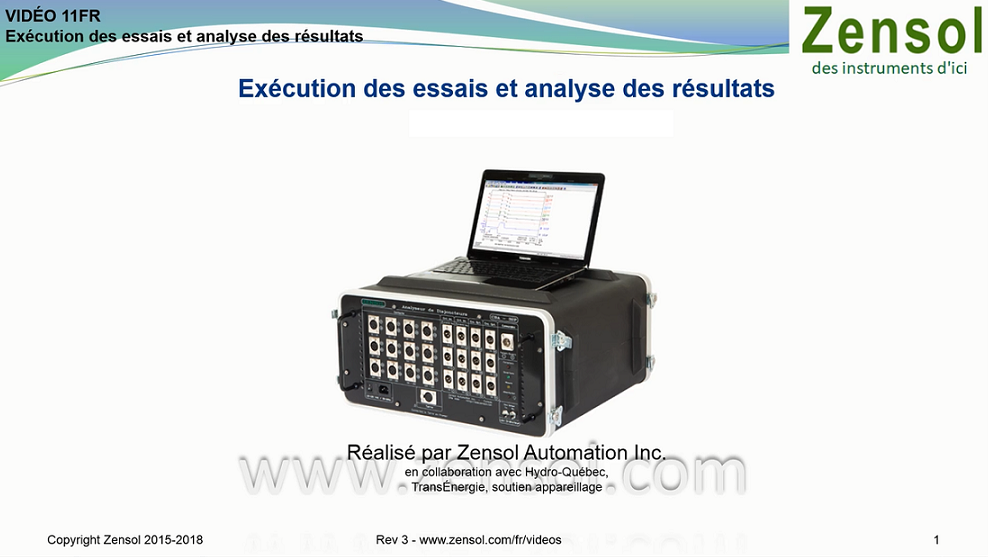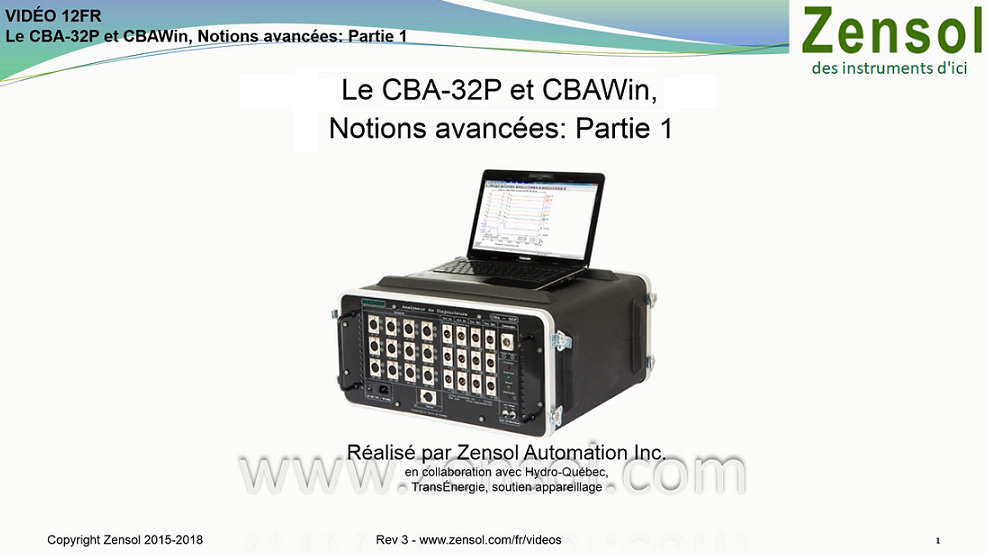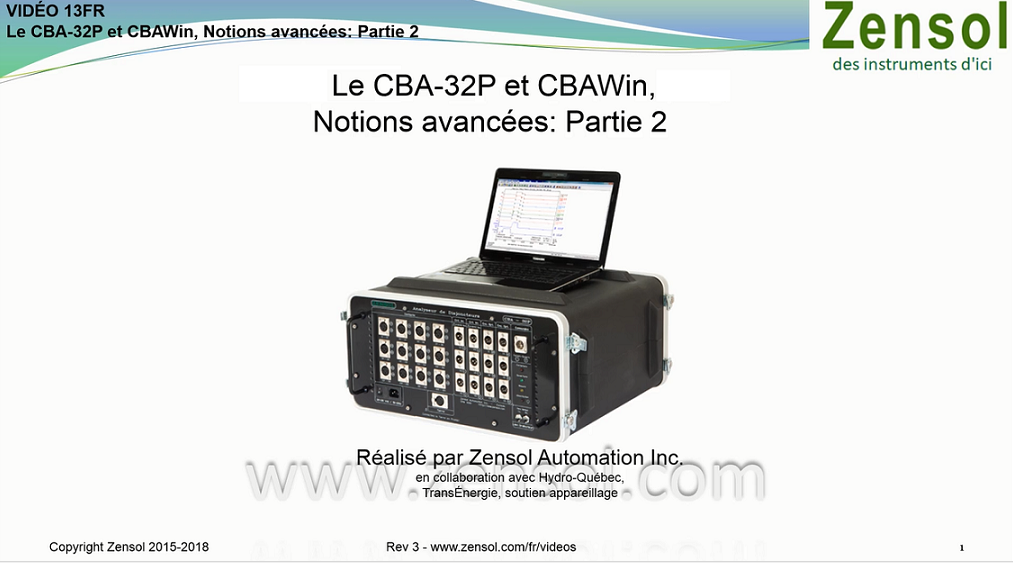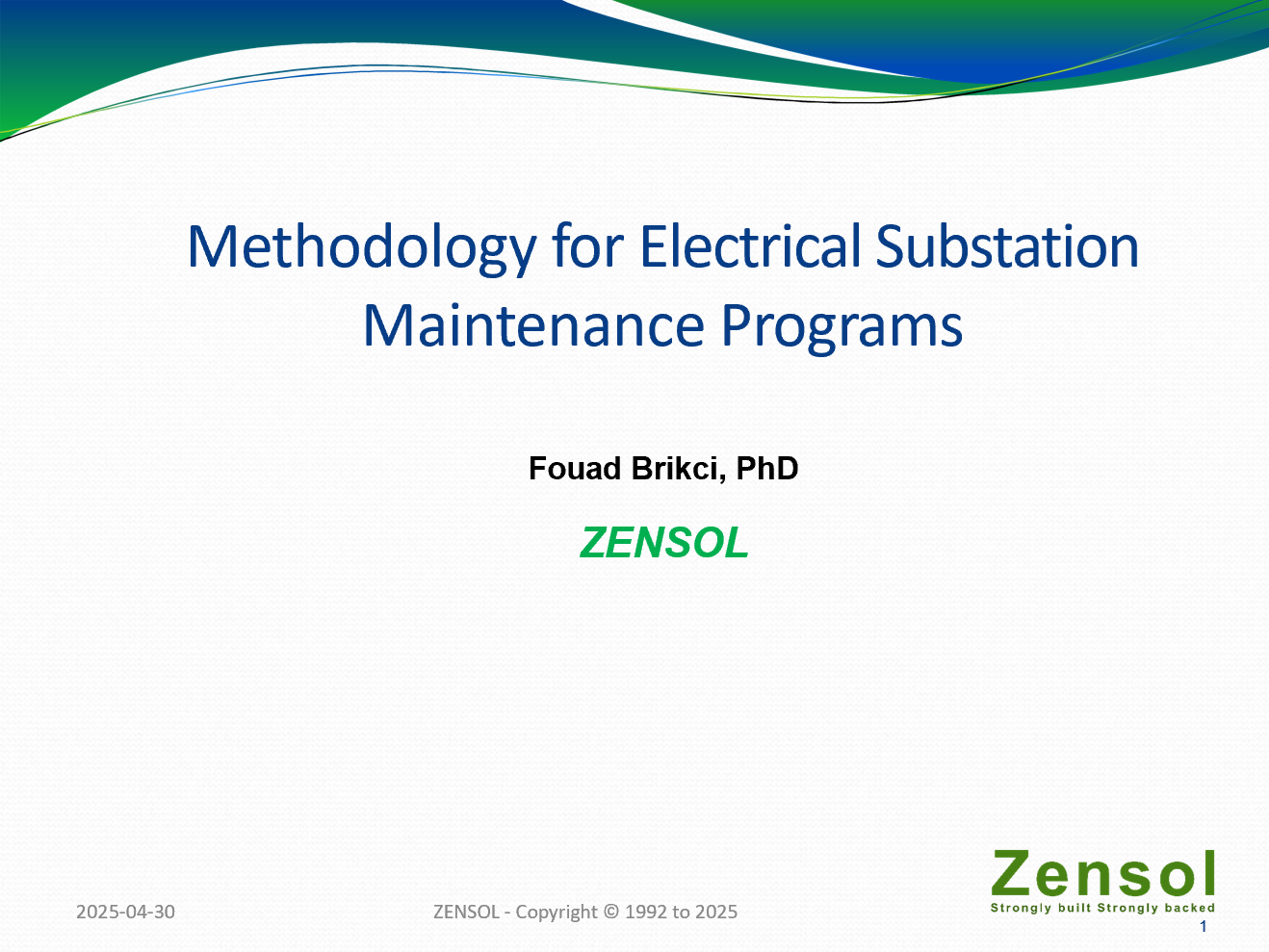VIDEOS
These videos, produced by Zensol Automation Inc., discuss fundamental to advanced concepts and explore the different principles of electrical circuit operation.
Video 1: Basic principles of electrical circuit breaking
This video explains what happens when you break a circuit in HV and how to prevent the arc from reestablishing itself in different insulating media.
Breaking an electrical distribution or transport network permits the isolation of part of the network from the rest of it. In the high voltage field, separating the contacts is not enough to break the current instantly.
When the contacts separate, the current continues to flow and a temporary electric arc forms between the moving and fixed contacts. To extinguish the arc, the arcing current must become zero and stay at zero. By varying the opening speed and the distance between contacts, the power and duration of the electric arc are greatly affected.
Sufficient contact spacing for certain insulating media helps a lot in cooling and extinguishing the arc.
Length: 9mn 43s
Topic : Electrical circuit breaking principles
Video 2: Auxiliary contacts
The pre-insertion contacts and the signal contacts are both commonly called auxiliary contacts and it is important to know the difference between them. This video describes the difference between the two types of auxiliary contacts and their respective roles.
Length: 5mn 09s
Topic : Electrical circuit breaking principles
Video 3: ICOS synchronous command
This video describes the principle of ICOS synchronous command and when it should be used. This command is used only during controlled open and close operations, which means during intentional operations. It is also used on other devices such as shunt coils, capacitor banks and some transformers at 315 kV and 735 kV. ICOS synchronous command is an interesting alternative to eliminating certain pre-insertion contacts.
Length: 5mn 01s
Topic : Electrical circuit breaking principles
Video 4: Grading Capacitors
This video explains what a grading capacitor is and when it should be used. Grading capacitors are mounted on the breaker in order to prevent any contact from being exposed to excess voltage.
Length: 2mn 08s
Topic : Electrical circuit breaking principles
Video 5: Circuit breaker timing principles
Length: 13mn 53s
Topic : Circuit breaker timing principles
Video 6: Locating cable connection points
Length: 4mn 19s
Topic : Circuit breaker timing principles
Video 7: Location of displacement transducers and installation procedures
The breaker mechanism’s motion gives a good idea of what type of transducer and mechanical adapter to use.
Length: 4mn 46s
Topic : Circuit breaker timing principles
Video 8: Introducing CBA-32P and CbaWin
The CBA-32P, created, designed and manufactured in Quebec by Zensol Automation Inc. is a specialized measuring instrument for diagnosing high-voltage circuit breakers. This portable instrument features open architecture and a modular structure in both hardware and software.
CbaWin is a specialized software package for testing all types of circuit breaker.
Once the cables have been connected to the circuit-breakers, and the CBA-32P has been connected to the computer, CbaWin assists the operator in all his tests.
Once the tests have been completed and properly recorded, analysis of the results is simplified thanks to powerful tools for viewing, enlarging, superimposing and comparing signals.
Length: 9mn 02s
Topic: CBA-32P measuring instrument from Zensol
Video 9: Description of the CBA-32P front panel layout
Many CBA-32P models feature the optional RES internal module.
The RES module measures the ohmic resistance of pre-insertion contacts in very noisy environments.
Duration: 7mn 57s
Topic: CBA-32P measuring instrument from Zensol
Video 10: Loading test plans and cable connections with CbaWin
The video also explains how to make the connections using CbaWin and connect the cables to a GVH and a HPL 330 B2.
Duration: 7mn 20s
Topic: CBA-32P measuring instrument from Zensol
Video 11: Performing tests and analyzing results
The video also explains how to perform a displacement test with a ZLR kit and a ZMS kit.
Duration: 11mn 43s
Topic: CBA-32P measuring instrument from Zensol
Video 12: The CBA-32P and CbaWin Advanced concepts: Part 1
Understand the Cbawin menu and learn how to activate and configure contact inputs.
Duration: 12mn 37s
Topic: CBA-32P and CBAWin, Advanced concepts
Video 13: The CBA-32P and CbaWin Advanced concepts: Part 2
Understand what an analog input, an optical encoder and a control input are, and learn how to activate and configure them.
Learn how to analyze and export results, and measure dynamic resistance using the MO-SD kit.
Duration: 13mn 40s
Topic: CBA-32P and CBAWin, Advanced concepts
Video 14: Vibro-Acoustic as a Fast Diagnostic Tool for On Load Tap Changers
The first part of this presentation shows how vibro-acoustic method is used as a fast diagnostic tool to easily detect mechanical problems in the tap-changers ONLINE or OFFLINE before they create an outage.
The second part will present a real case showing how New Brunswick Power has used this tool to adjust properly an OLTC.
Duration: 41mn 51s
Topic: ON LOAD TAP CHANGERS
Video 15: Vibro Acoustic for OLTCs: HOW
-
The general setup
-
The accelerometer installation
-
The current clamp installation
-
The test sequence
Duration: 3mn 54s
Topic: ON LOAD TAP CHANGERS
Video 16: Methodology for Electrical Substation Maintenance Programs
Duration: 34mn 18s
Topic: Breaker, transformer, and OLTC maintenance

